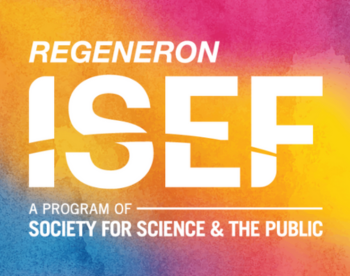25 Mechanical Engineering Research Topics for High School Students
[elementor-template id="1670"]
Mechanical engineering is a comprehensive discipline that integrates natural sciences and technical sciences, deeply exploring knowledge related to the design, manufacture, operation, and maintenance of mechanical systems. This field encompasses not only traditional mechanical design and manufacturing but also spans various interdisciplinary areas such as automation, robotics, materials science, thermodynamics, and fluid mechanics.
The rapid advancement of technology means that sectors like industrial manufacturing, transportation, and national defense are reliant on the support of mechanical engineering technology. Developments in mechanical engineering not only enhance productivity and product quality but also drive the growth of emerging industries. For instance, in the aerospace field, innovative designs in mechanical engineering ensure the safety and performance of aircraft; while in the medical field, the development of precision medical instruments brings new hope to patients.
By participating in mechanical design, fabrication, and debugging activities, high school students can combine theoretical knowledge with practical problem-solving, which helps them gain a deeper understanding and retention of knowledge. Furthermore, the study of mechanical engineering aids in developing students' innovative thinking and problem-solving skills. When faced with complex problems, students need to employ their acquired knowledge and skills to think creatively and propose feasible solutions. This type of intellectual training is highly beneficial for their future studies and career development. Moreover, research in mechanical engineering helps students solidify their grasp of fundamental knowledge in subjects like physics and chemistry, expand their knowledge horizon, and enhance their overall competence.
How can high school students participate in Mechanical Engineering Research?
In today's rapidly advancing technological era, mechanical engineering, as a fundamental and important discipline, plays a significant role in cultivating students' innovative thinking and practical abilities. As future researchers and technological talents, how can high school students effectively conduct research in mechanical engineering?
1. Topic Selection and Positioning
Choosing a research topic is the starting point of mechanical engineering research. Students should start from their own interests, considering which aspects of mechanical engineering fascinate them the most, as interest is the best teacher; it can ignite students' sustained enthusiasm for research. At the same time, consider the practical application value of the research topic, selecting those that can solve real-life problems or have potential applications, such as studying energy-saving and emission-reduction technologies, developing new materials, or intelligent manufacturing. Next, conduct preliminary literature reviews to understand the current state and trends in the field. By reading relevant books, academic journals, and online resources, students can identify gaps in research and avoid duplicating existing studies. Finally, assess the feasibility of the topic, including time, resources, and technical aspects, to ensure it can be completed under existing conditions.
2. Research Methods and Implementation
After determining a research topic, developing a detailed research plan is crucial. The choice of research methods should depend on the specific needs of the topic, with common methods including the experimental method, survey method, and literature analysis method. During implementation, focus on the rationality of experimental design, the accuracy of data collection, and the scientific nature of data analysis. Experimental design should include the selection of materials, configuration of equipment, and planning of steps. Data collection must strictly follow the design to ensure accuracy and reliability. Data analysis involves employing appropriate statistical methods and tools to process and analyze experimental data, leading to preliminary conclusions.
3. Paper Writing and Standards
Writing a research paper is an important way to showcase students' research capabilities and innovative thinking. A complete mechanical engineering research paper should include an introduction, literature review, methodology section, results section, discussion section, and conclusion. During writing, students should pay attention to the reasonableness of the paper's structure, the clarity of logic, and the accuracy of language. It's also important to properly cite others' work to avoid plagiarism issues and demonstrate academic integrity.
4. Challenges and Coping Strategies
During the research process in mechanical engineering, high school students may encounter challenges such as time management difficulties, resource limitations, and insufficient theoretical knowledge. To tackle these issues, students can overcome them by creating detailed timelines, utilizing school or community resources, or through self-study and consulting teachers. Effective time management is key, by devising detailed schedules and reasonably arranging work at different stages to ensure the project is completed on time. Regarding resources utilization, make full use of school libraries, laboratories, and actively seek help from teachers and classmates. Knowledge enhancement can be achieved through self-learning, attending training courses, or seeking guidance from experts to compensate for theoretical shortcomings.
In this curated content, Embark's mechanical engineering mentors have selected 25 innovative and exploratory mechanical engineering topics tailored for high school students. These topics cover multiple dimensions of mechanical engineering, aimed at sparking students' interest in the field and providing them with rich research inspiration.
Robotics and Automation
Robotics and automation, as essential products of the information age, have penetrated various industry sectors. High school students can explore topics such as collaborative robots, drone technology, manufacturing automation, and AI-driven robotics. These studies can enhance students' knowledge of programming and circuits, as well as help them understand the practical applications of robotics and automation, laying a foundation for future technological development.
1. Collaborative Robots
Research collaborative robots in industrial environments, focusing on their safety interaction mechanisms with human workers. Use advanced sensors and AI algorithms to optimize the robots' perception and decision-making capabilities, ensuring efficient and safe collaboration in complex operations.
2. Drone Technology
Study quadcopters to explore key technologies of flight stability and maneuverability. Use carbon fiber composites to reduce body weight, combined with advanced flight control systems, to enhance the drones' handling performance and endurance.
3. Manufacturing Automation
Focus on welding robots on automotive assembly lines, analyzing their degree of automation and efficiency. Optimize welding parameters and path planning to improve welding quality and production efficiency, while reducing production costs.
4. Simple Robot Building
Research autonomous obstacle-avoidance cars based on the Arduino platform, using infrared sensors and motor driver modules for environmental perception and motion control. Through programming and debugging, cultivate students' programming logic and hands-on practice skills.
5. Automated Irrigation System
Study intelligent drip irrigation systems that automatically adjust irrigation quantities based on soil moisture. Use humidity sensors and solenoid valve control modules, combined with IoT technology, to achieve precise irrigation and efficient water resource utilization.
Thermal and Fluid Systems
Thermal and fluid systems study fluid behavior and heat transfer, involving HVAC systems, automotive aerodynamics, and more. High school students can explore topics like efficient cooling mechanisms, fluid flow simulations, renewable energy and thermodynamics, and microfluidics in medical devices. These studies help students deeply understand the principles of thermodynamics and fluid mechanics and apply them to solve real-world problems.
6. Efficient Cooling Mechanisms
Research liquid cooling systems for high-performance computers to explore the application of efficient cooling materials. Use novel nano-fluids as coolants and design optimized flow channel structures to significantly enhance cooling efficiency, ensuring stable computer operation.
7. Fluid Flow Simulation
Using the example of fluid flow in oil pipelines, study numerical simulation methods for complex fluid behaviors. Utilize CFD technology to establish accurate flow models, predicting flow rates and pressure distributions under various conditions, thus providing scientific basis for pipeline design.
8. Microfluidics in Medical Devices
Research microfluidic chips in portable blood testing devices to optimize detection precision and response speed. Use biocompatible materials to create microchannels, combined with micropump and sensor technology, to achieve rapid and accurate blood component analysis.
Materials and Manufacturing
The materials and manufacturing field focuses on the properties of different materials and their applications in the manufacturing process. High school students can choose to research topics such as 3D printing innovation, smart materials in everyday products, sustainable manufacturing, and the properties of nanomaterials. Through these studies, students will grasp basic knowledge of material science and explore the application of new materials in actual manufacturing.
9. 3D Printing Innovation
Research the 3D printing process of titanium alloy parts to explore how printing parameters affect part performance. Use laser melting technology to optimize layer thickness, scanning speed, and other parameters to improve the strength and surface quality of parts.
10. Smart Material Applications
Study the application of shape memory alloys in smart windows to realize automatic adjustment functions. By controlling the thermo-induced deformation characteristics of the alloy, design the opening and closing mechanism of smart windows to improve indoor comfort and energy efficiency.
11. Sustainable Manufacturing
Focus on the injection molding process of bamboo fiber-reinforced plastics, studying their environmental and mechanical properties. Use the naturally renewable characteristics of bamboo fiber to optimize injection molding parameters, producing lightweight and high-strength green products.
[elementor-template id="1677"]
Biomechanics
Biomechanics combines biology and mechanics to study the mechanical aspects of biological entities, such as human motion and cellular behavior. High school students can explore topics like prosthetic design and biomechanics, sports biomechanics, cell mechanics and health, and wearable devices for motion analysis. These research topics help students understand the principles of biology and mechanics and apply them in medical and health fields.
12. Prosthetic Design and Biomechanics
Study above-knee prosthetics to optimize their movement stability and comfort. Use flexible materials and bionic joint design, combined with ergonomic principles, to enhance the prosthetic fit and user experience.
13. Sports Biomechanics
Using a basketball player's jumping as a research object, analyze the mechanical properties and energy conversion efficiency of lower limb muscles. Utilize high-speed cameras and force plates to reveal the mechanical principles during jumping, providing scientific guidance for sports training.
14. Cell Mechanics and Health
Research vascular endothelial cells to explore the impact of blood flow shear stress on their proliferation and differentiation. Construct an in-vitro flow chamber model to simulate blood flow environments and reveal the cell mechanics response mechanism, providing new insights for cardiovascular disease treatment.
Automotive Engineering
Automotive engineering focuses on the design, manufacturing, and operation of vehicles, involving aspects of performance, safety, and efficiency. High school students can study electric vehicle innovation, high-speed vehicle aerodynamics, modern automotive safety mechanisms, and the future of autonomous vehicles. These studies will help students understand the basic principles of automotive engineering and explore the future direction of automotive technology.
15. Electric Vehicle Innovation
Research the battery management system of a pure electric SUV, optimizing energy management and charging strategies. Use advanced battery monitoring technology and intelligent control algorithms to improve the lifespan and driving range of the battery pack.
16. High-Speed Vehicle Aerodynamics
Using sports cars as a study object, analyze the impact of body shape on air resistance. Utilize wind tunnel experiments and CFD simulation technology to optimize the streamlined design of the car body, reduce drag coefficient, and enhance driving performance.
17. Autonomous Vehicle Technology
Research the perception and decision-making systems of autonomous vehicles, exploring their reliability in complex traffic scenarios. Use multisensor fusion technology and deep learning algorithms to improve the identification accuracy and response speed of autonomous driving systems.
Renewable Energy Systems
Renewable energy systems study how to more effectively utilize renewable resources like wind, solar, and water. High school students can explore topics such as wind turbine design, solar thermal utilization, biomass energy conversion, and marine energy utilization. These studies will aid students in understanding renewable energy technologies.
18. Small Wind Turbine Design
Research the design of small vertical-axis wind turbines for home use, optimizing wind energy capture efficiency and power generation performance. Use lightweight materials and high-efficiency blade design, combined with intelligent control systems, to achieve stable and reliable power output.
19. Solar Thermal Conversion Devices
Study flat-plate solar collectors to explore methods for improving their thermal conversion efficiency. Use selective absorption coatings and vacuum insulation technology to optimize collector structure and operating parameters, enhancing the temperature and stability of hot water supply.
Other Topics
20. Mechanics Model Experiment
Research simply supported beam bending deformation experimental devices to explore deflection laws under load. Use laser displacement sensors and data acquisition systems to precisely measure beam deformation, helping students visually understand mechanical principles.
21. Smart Home System Design
Research smart lighting systems based on the Zigbee protocol to achieve remote control and automatic adjustment of lights. Combine temperature and humidity sensors with light sensors to optimize home comfort and energy-saving effects.
22. Performance Testing of New Materials
Research graphene-enhanced composites and test their mechanical properties under different temperature and stress conditions. Use universal testing machines and thermal analysis instruments to evaluate the material's strength, toughness, and thermal stability.
23. Wind Energy Utilization Device
Study portable wind-powered fans to drive small generators and generate electricity using wind energy. Optimize fan blade design and generator structure to improve energy conversion efficiency, meeting the needs for outdoor emergency power supply.
24. Smart Traffic Signals
Research intelligent signal control systems at urban intersections that automatically adjust signal timing based on real-time traffic flow. Use video detectors and traffic data processors to achieve real-time traffic monitoring and intelligent signal control.
25. Environmentally Friendly Packaging Materials
Research biodegradable plastic packaging films, testing their degradation performance and mechanical strength in different environments. Use bio-based materials and eco-friendly processing techniques to develop attractive and environmentally friendly packaging solutions.
You can view more mechanical engineering research topics for highschool students here.
Another Option - Embark Exploration Program
Embark, established in 2016, is an educational institution focused on providing customized scientific research training for young people. The core team members are graduates from top universities in the United States. Embark has over 3,000 mentors from prestigious institutions such as the Ivy League, MIT, Caltech, Johns Hopkins University, and Carnegie Mellon University.
Embark offers personalized one-on-one research guidance, tailoring research topics to the interests of each student. Embark helps students systematically develop research skills, build a solid research framework, integrate research with real-world applications, understand the value of research, and enhance their problem-solving abilities. All of this contributes to strengthening their college applications.
For more information, please visit the Embark Exploration Program. If you have any questions or need further information, feel free to contact us. We would be happy to assist you and discuss collaboration opportunities.
[elementor-template id="1682"]



